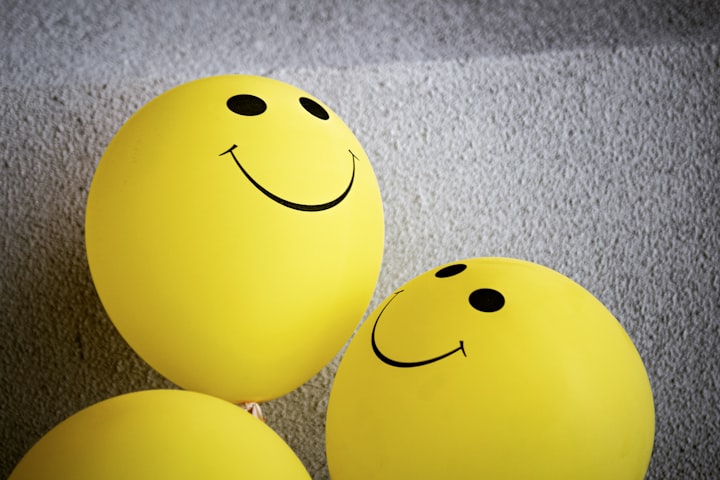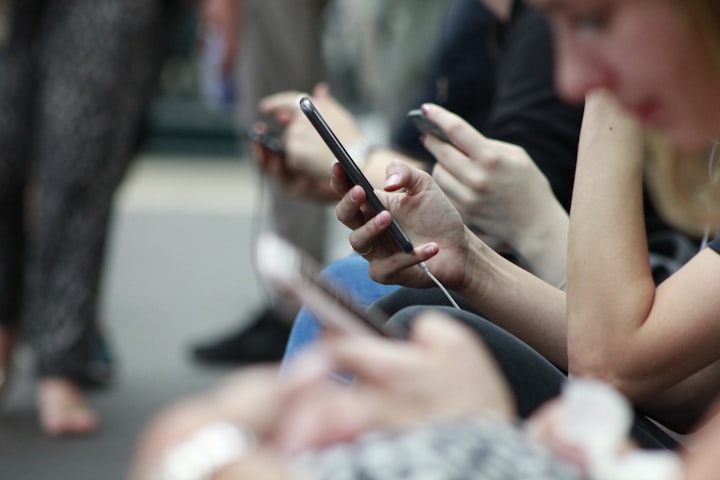How is Modern Society Damaging Our Mental Health?
An Investigation

Modern Society, the society we live in, is often deemed to be the one that is the best, the most advanced and the most efficient. But did not every single society throughout history think that of itself? Exactly who is our society 'efficient' and 'advanced' for and why are we, average people, not really seeing the benefits?
There are a ton of things in our society that have been blamed for ruining our mental health including: smartphones, alcohol, coffee, social media, films and even magazines. But why do people then say, "in (historical era) day and age, there was no such thing as mental health..." because I can prove to you that there was and it was just thoroughly ignored to the point of oblivion. In these 'old days' drugs were easier to get your hands on and so, people self-medicated with potentially harmful chemicals - the same thing we do with alcohol and cigarettes now was being done with those and then some back then. As early as the 1930s, there was a cocaine culture and obviously, people were addicted to this drug. The mental health of individual taking the drug though never seems to be questioned.
I would agree that the things we have seen in the previous paragraph are ruining our mental health but, in perspective, we have to see exactly why these tools that sought to make our existence better are actually making it worse. It has absolutely nothing to do with the tools themselves but how we interact on them.
Social Media

As we know, social media lets tons of people come together online and discuss, report and perform aspects of their lives. Everything from what someone is reading to what your best friend's dog is doing today and all the way through to your old university lecturer making themselves cocktails on a video have been shared, uploaded and what not on social media. But then again, we know there is something wrong with this. We know that someone, somewhere is feeling inadequate because of what they see as the 'perfect image' on these sites. We know that there are people on some comments sections discussing the disadvantages of having people of colour in their western country and therefore, denying our existence. We know that there are people trying to rationalise horrendous crimes committed by other people. And yet, we continue to use it.
Why?
We are not actually addicted to social media, as the media itself would have suggested. But instead, we are addicted to finding connections - having friends and enemies. We are addicted to the feeling of being both completely known for who we are online and yet, being in the safety of your own home/work place without most of the people we know online ever coming into contact with us.
Smartphones

Smartphones are a strange one because it sometimes depends on what you are doing on that smartphone that would intrisically harm your mental health. Things such as social media are mostly used on smartphones, things such as photoshop are also used on smartphones and internet shopping is mostly done on smartphones. In the end, we can honestly say that smartphones are not the root cause, but rather the accumilating problem that we have. Back when I was younger, we had a different device for each thing: I had an MP3 player for my 20 songs, I had a walkman for my favourite CD, I had a DVD player and a VHS Player for my films, I had a computer for my chatrooms, books for my research and a radio that had a cassette player inside for more music. None of these things involve socialising with other people but actually encourage socialising in real life. I would take my radio to school and we would listen to it at break time. When I was in secondary school, we were provided with a radio and a CD player which we would take in our CDs and play them during lunchtimes.
I was fifteen when I got my first real smartphone which had the internet and all that jazz. Before that, I simply used the computer. But having to go from device to device makes you realise how much time you are spending on them because you have to actually move things and do things in between. Therefore, you are less likely to sit there for hours on end doing the same thing - you're going to have to change or flip the cassette some time.
My mother would say to me after 45 minutes or so on the computer, "no more computer time now..." and I would go and do something else which would be probably my homework or read a book. But I agreed with her because I felt almost bored just talking to my friends online who were all just friends from school. When Facebook came around, they put in the multiple possibilities of talking to people you had never actually met. This was initially the reason I refused to get Facebook, got it and then ended up deleting it. It's not addictive in the sense that people are saying - it simply makes you unaware of time because of there being so much content at such a great speed.
This instantaneousness has made us completely forget time and now, it has become a condition in which we have mental health issues because we find we lack the time, when instead we lack the concept and understanding of time.
Conclusion
What you can see here are only two of the things that have had a profound difference on our mental health. It is no longer about making us make time to care for ourselves, but seeing which billionaire on the internet can make something that will make us waste time on other, less important things. It's not so much to 'break out of the cycle', it is instead solved by moderation.
About the Creator
Annie Kapur
200K+ Reads on Vocal.
English Lecturer
🎓Literature & Writing (B.A)
🎓Film & Writing (M.A)
🎓Secondary English Education (PgDipEd) (QTS)
📍Birmingham, UK






Comments
There are no comments for this story
Be the first to respond and start the conversation.